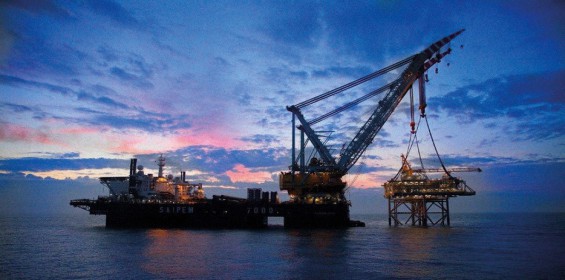Maritime fire protection: at port and at sea
Published: 02 October, 2019
Pierre Thome, managing director, Chubb Fire & Security, France: On-board a ship, platform or rig, fire is potentially the greatest single threat to safety and choosing the right fire protection is critical. In the event of fire, there is no municipal brigade to call, so effective extinguishing systems and fire-fighting equipment are vital.
Fatal fires on oil rigs, such as the 2010 Deepwater Horizon disaster that killed 11 people and the 1988 Piper Alpha disaster that caused 165 deaths, highlight the importance of having systems in place that minimise the risk and the devastating effects of fire in the notoriously hazardous offshore and maritime environment.
It is essential that fire safety and security solutions cover all aspects of fire detection, fire extinguishing and safety services to protect the marine and offshore segments and the people who go to work every day on crane ships, tank storage and handling sites and rigs. The health and safety of the crew depends on the installation and maintenance of new systems, the supply of approved equipment, servicing, repair and renovation, as well as foam testing and certification. This is equally important on land, as it is at sea.
SEA-Tank l, for example, builds and manages tank storage and handling sites in Belgium and France. These provide storage for millions of cubic metres of liquids, such as highly flammable petrochemicals.
Products stored in the tanks can easily catch fire or explode with potentially disastrous consequences. Therefore, it is vital for these sites to not only maintain an alert and effective fire monitoring and detection system, but also to have highly effective suppression and extinguishing systems in place. The systems are complicated by the composition of the SEA-Tank sites, which combine a mixture of new build sites and existing storage plants with distinct fire safety requirements and challenges. The high level of fire risk also means that each tank requires its own tailored protection system, creating a challenging and ever-evolving response environment.
The critical need is to contain and protect assets, whilst protecting workers and the physical environment. Central to achieving this is the imperative of ensuring efficiency and immediacy of fire detection and facilitating speed in fire suppression response.
As a solution, Chubb created a comprehensive package including fire detection, monitoring and suppression. This integrated approach works to contain and protect assets stored within SEA-Tank Terminal storage tanks, ensuring that in the event of combustion, the fire is contained and the environment is controlled until the systems are sufficiently cooled and fire suppression teams are deployed. Ultimately the possibility of an explosion is reduced.
In addition to the challenge of protecting highly flammable and corrosive liquids, the complexity of the storage tank sites and wider network means it is critical for Chubb to manage all project installations and closely align with the SEA-Tank to effectively time the installation of detection equipment. The result is an integrated, tailored and responsive solution to maximise the quality of fire monitoring and detection services across all SEA-Tank terminal sites.

Out at sea, facilities are often isolated and maintained in harsh external conditions. This can severely complicate the installation, commissioning and maintenance of fire protection systems. Saipem 7000 is the world’s second largest crane ship. It lays cables and pipes on the seabed across the world. The ship employs 600 people and is nearly 200 metres in length.
Chubb was selected to provide fire protection for the Saipem 7000. This posed a difficult and logistically complex task given the ship’s tight schedule, leaving little time for maintenance of fire equipment. Chubb’s role was to protect the staff and ship from fire hazards and update all video surveillance systems, all whilst having no impact on the daily operations of the ship.
To avoid delays or disruption, Chubb designed the system and supplied the materials for Saipem employees to complete the installation while the crane was travelling to its next destination. Following a survey of the crane ship, Chubb carried out complete maintenance of fire suppression systems, portable and wheeled extinguishers, air compressors and emergency equipment. The company also installed fire extinguishers throughout the ship and a suppression system for the kitchen. Chubb now protects the Saipem 7000 from fire risks by providing ongoing maintenance services on board the ship, wherever it is in the world.
Tragedies such as Piper Alpha and Deepwater Horizon showed the world the devastation fire can wreak on an offshore environment. These events serve as a constant reminder of the importance of having and maintaining fully functioning fire safety systems to prevent, detect and suppress fires. Offshore and maritime fire safety has improved considerably since these disasters; however, fire threats are constantly evolving, and it is crucial to stay ahead and adapt to these challenges.





